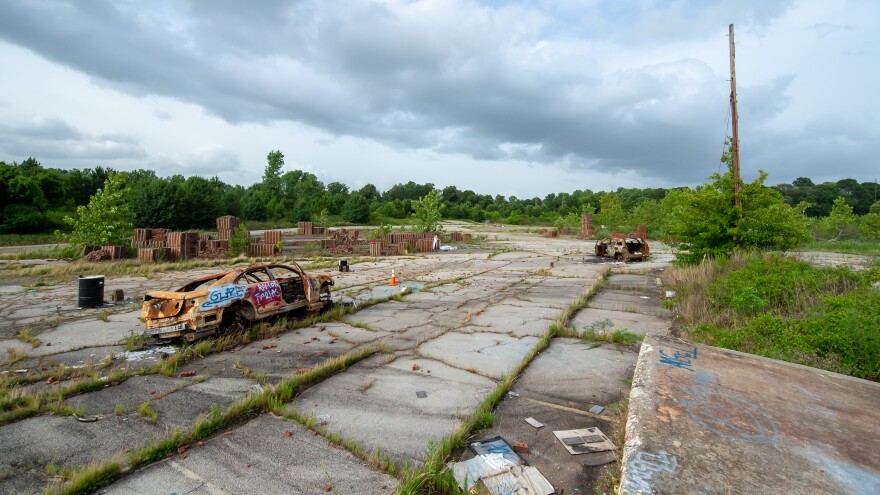After the Civil War, much of the South needed to be rebuilt.
One of the places that helped do that was the Chattahoochee Brick Company, owned by an Atlanta mayor and captain in the Confederate Army. It produced millions of bricks that were used in Atlanta homes and roads.
The factory is gone, but there is new focus on the people who lived and worked there, unpaid, and in horrible conditions.
Like other factories, farms and mines around the South, Chattahoochee Brick profited from using convict labor. Private companies leased people from a state, county or city. Most were Black men, though there were some white men, and teenagers and women, too.
Now, as people are reckoning — again — with the monuments built to tell the nation's story, some are pushing for a memorial to Chattahoochee's forced laborers.

"You had the most heinous kinds of torture practiced on people as a way of intimidating people into complying with this terrible system of forced labor," says Mary Ellen Curtin, a history professor at American University and author of the book, "Black Prisoners and Their World."
Whipping was common, and so severe that the guards killed some people, according to writer Douglas Blackmon. The prisoners lived in filthy barracks and ate rotting food.
"It's a chapter of our history that most people don't know. And then the thing is, it's in our backyard," says Donna Stephens of the Proctor Creek Stewardship Council, an environmental justice group.
There are no buildings at the old factory site now, but Stephens and other advocates worry an industrial development is coming. People in the area have seen surveyors and a new security guard.
The property is privately owned, and the owner did not respond to requests for comment. Norfolk Southern, a railroad with tracks adjacent to the site, also declined to comment.
Stephens is hoping the city of Atlanta will buy the land to make it into a memorial and a park.
The idea has support from City Councilman Dustin Hillis, who represents the area. "Just to remember what occurred there, so that we don't ever repeat that," he says.
The push to build a memorial to the victims of convict leasing comes as Confederate statues and monuments are being reconsidered and removed. Those efforts gained momentum after a white police officer in Minneapolis killed George Floyd, who was Black.
Georgia outlawed convict leasing more than a century ago, but the state is still living with its legacy, says University of Virginia historian Talitha LeFlouria.
LeFlouria, the author of "Chained in Silence," says while there are hundreds of monuments to the Confederacy, she doesn't know of any commemorating the people who worked under the convict-leasing system.
"These people may be America's shame, but we don't have to be ashamed of them," she says.
Copyright 2021 NPR. To see more, visit https://www.npr.org.



